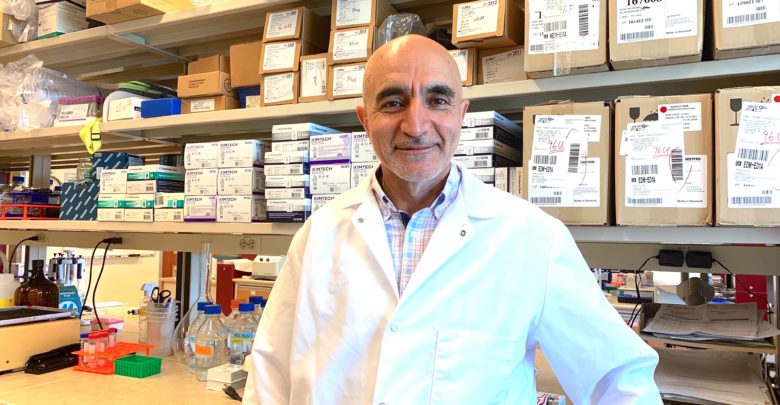 Supplied
SuppliedA recent University of Alberta study found a correlation between increased levels of galectin-9 protein and pro-inflammatory cytokines in the blood of COVID-19 patients.
Lead researcher Shokrollah Elahi, an associate professor in the faculty of medicine and dentistry, found elevated levels of a protein called galectin-9 in the blood of COVID-19 patients. According to Elahi, raised levels of galectin-9 result in an increase of pro-inflammatory cytokines released in the blood, which can lead to a cytokine storm.
In cytokine storms, the immune system begins attacking healthy tissues and cells. This results in damage to the human body.
“When we have a cytokine storm — these are mainly pro-inflammatory cytokines — they cause inflammation,” Elahi explained. “This extensive inflammation results in damage.”
Elahi’s lab has been conducting COVID-19 research since March 2020, and has been operating throughout the pandemic.
“One day [in March 2020] I was driving to work, and on the news it said they’re shutting down everything [due to COVID-19],” Elahi described. “I was on 112 Street turning onto 87 — and during the turn I came to the conclusion that I have to make a contribution to COVID-19 research.”
“I didn’t have any COVID-19 research background, but I’m an immunologist. I pivoted in my program and repurposed all my lab. Instead of shutting down, my lab was operational throughout this period and we worked through the COVID-19 pandemic.”
According to Elahi, the next step in his lab’s research is figuring out how to prevent or inhibit the expression of galectin-9. This could mean preventing immune cells from releasing galectin-9, neutralizing galectin-9 after it is released, or chemically breaking it down.
Elahi described COVID-19 as one of the most sophisticated and complex infections that humans ever faced. He considered the research being done in his lab as one step forward in the dynamic world of COVID-19 research.
“The magnitude of research on COVID-19, since over a year ago, is just incredible,” Elahi described. “I’ve seen the thousands of articles published in this field, and I believe that our discovery — or any discovery — is just one step forward.”




